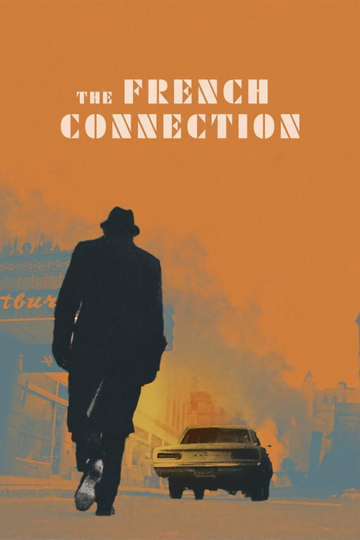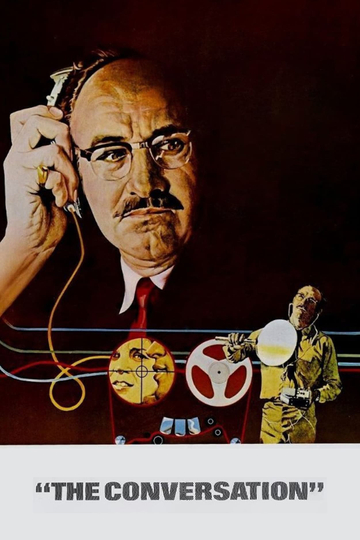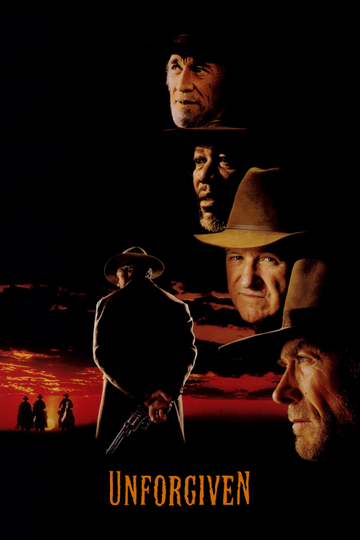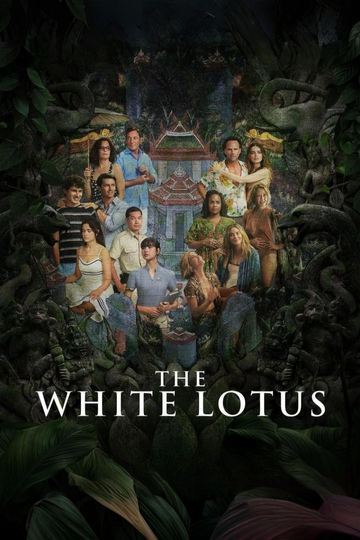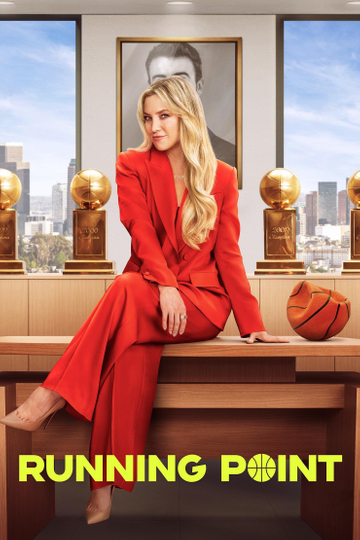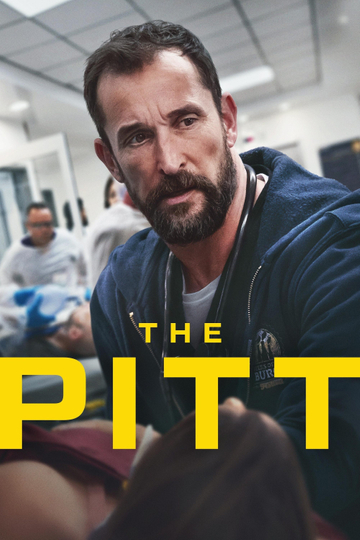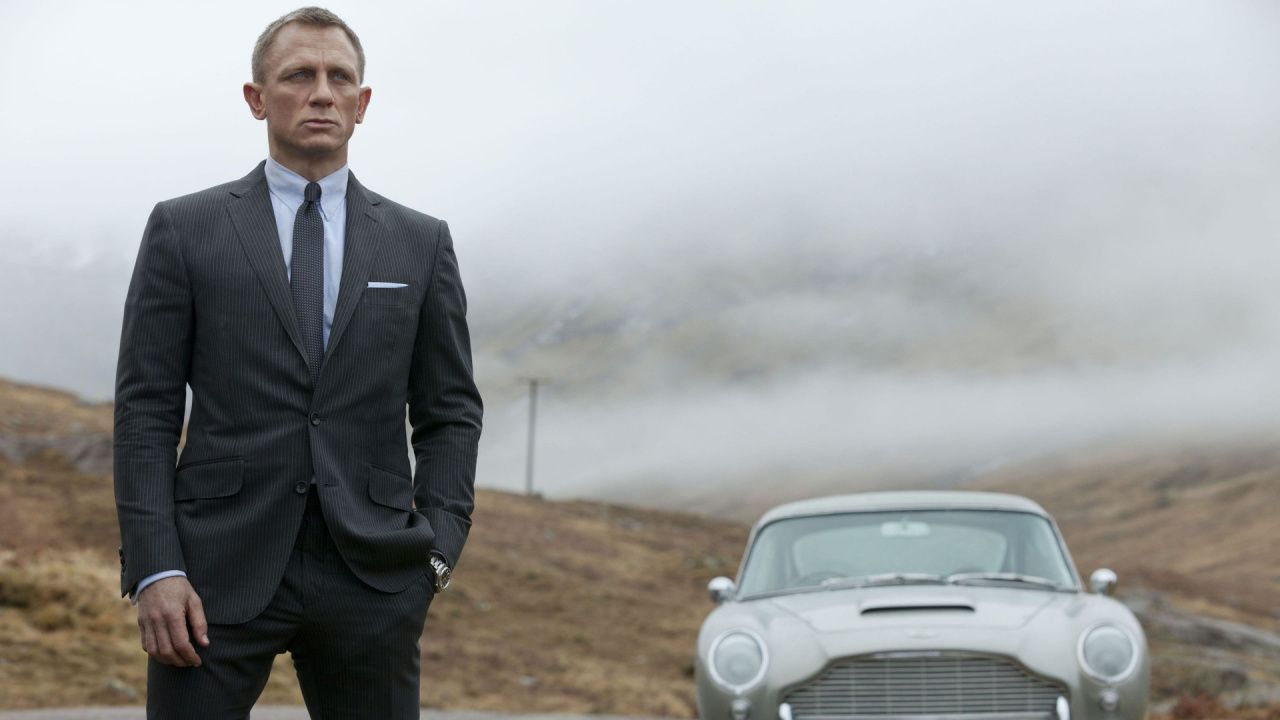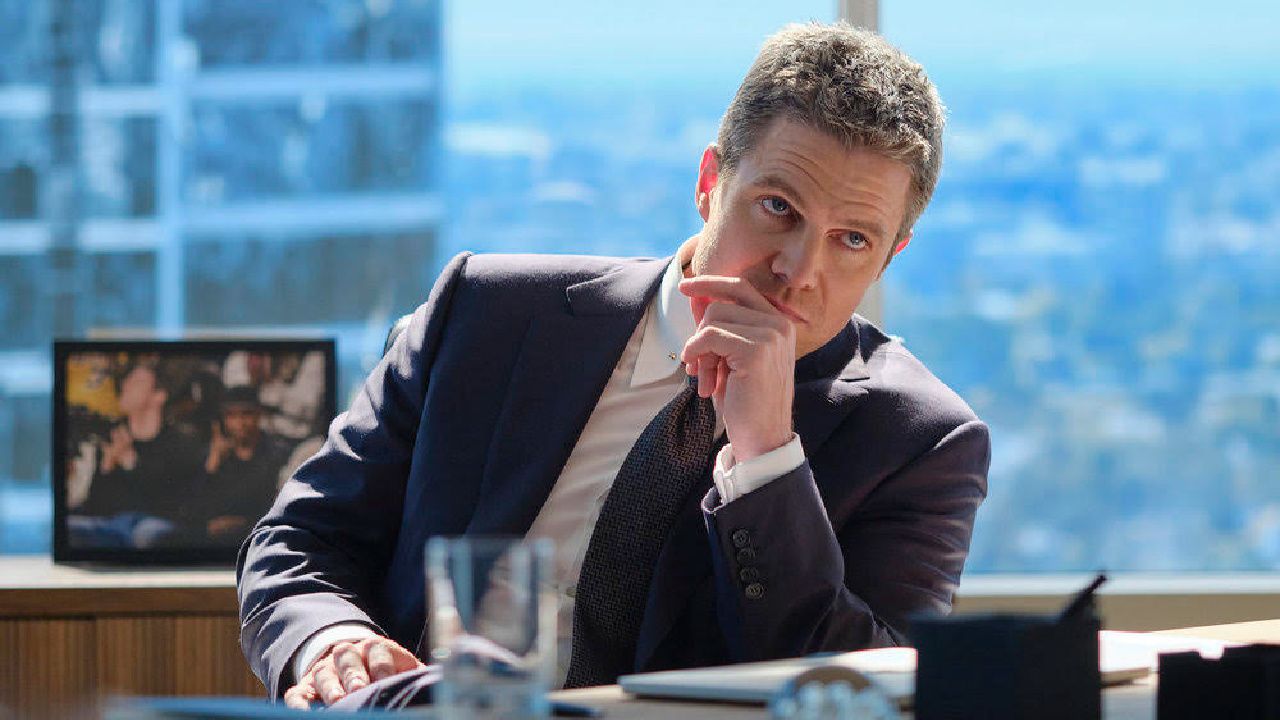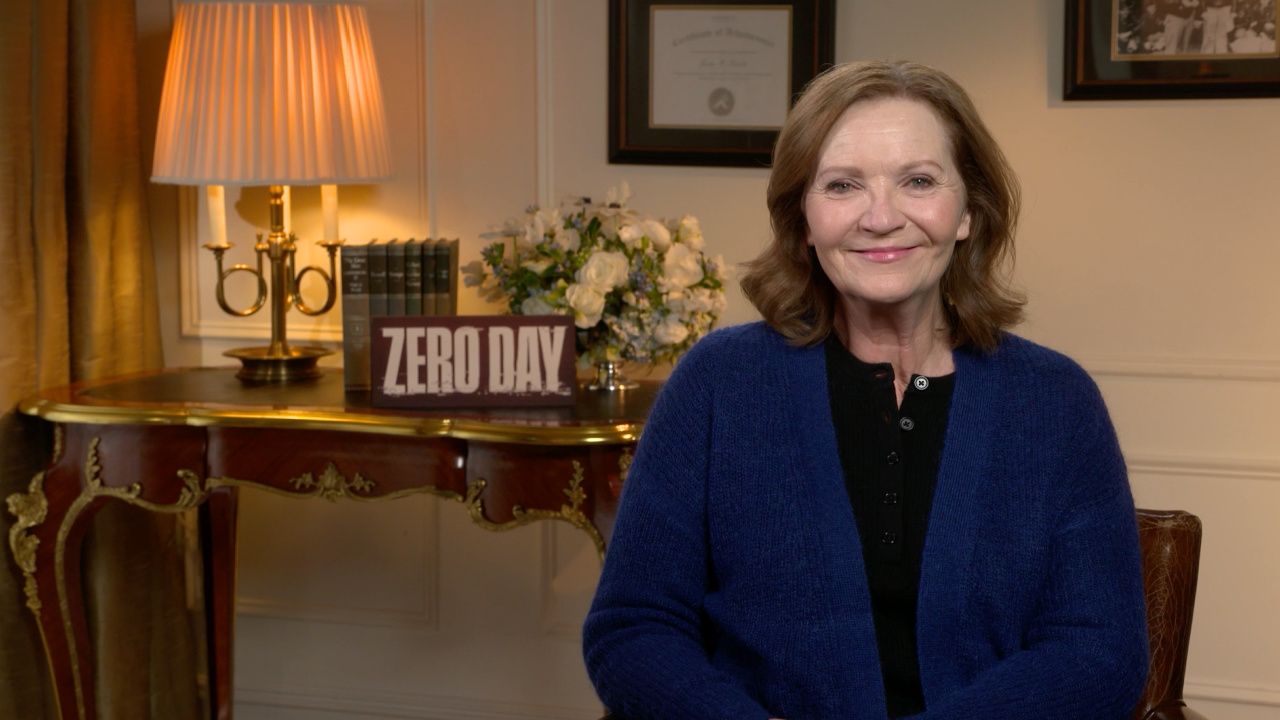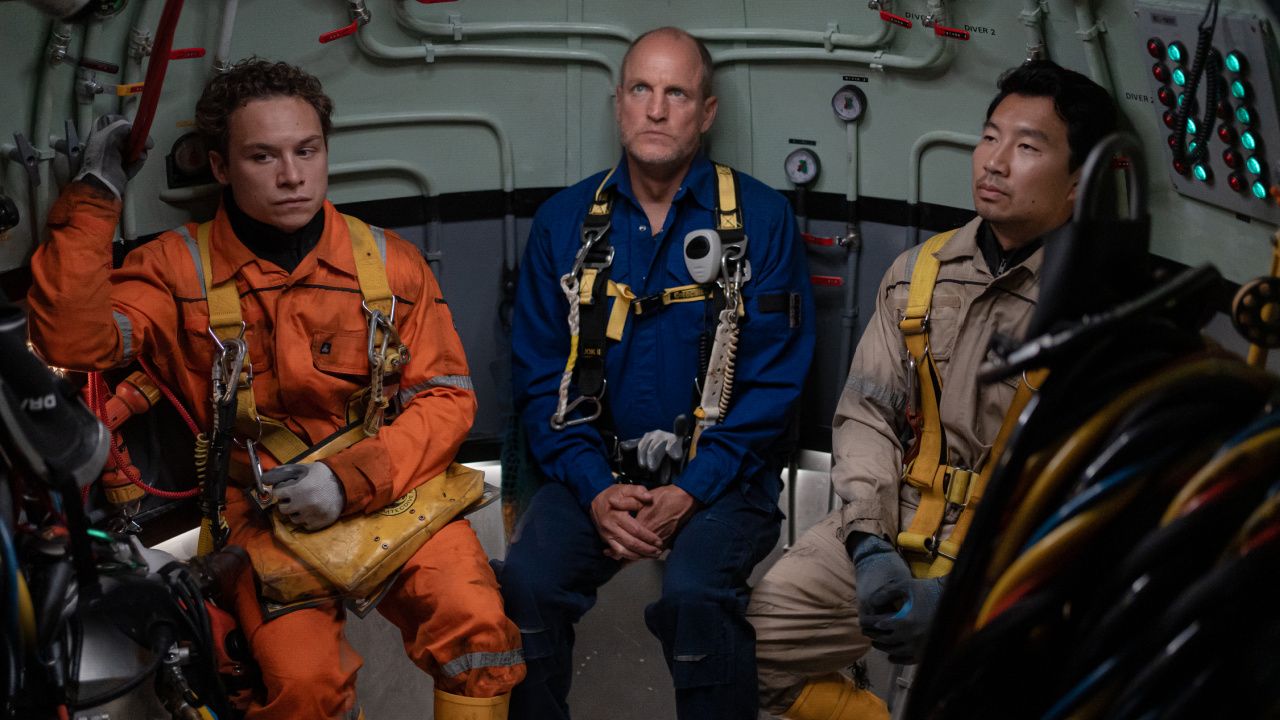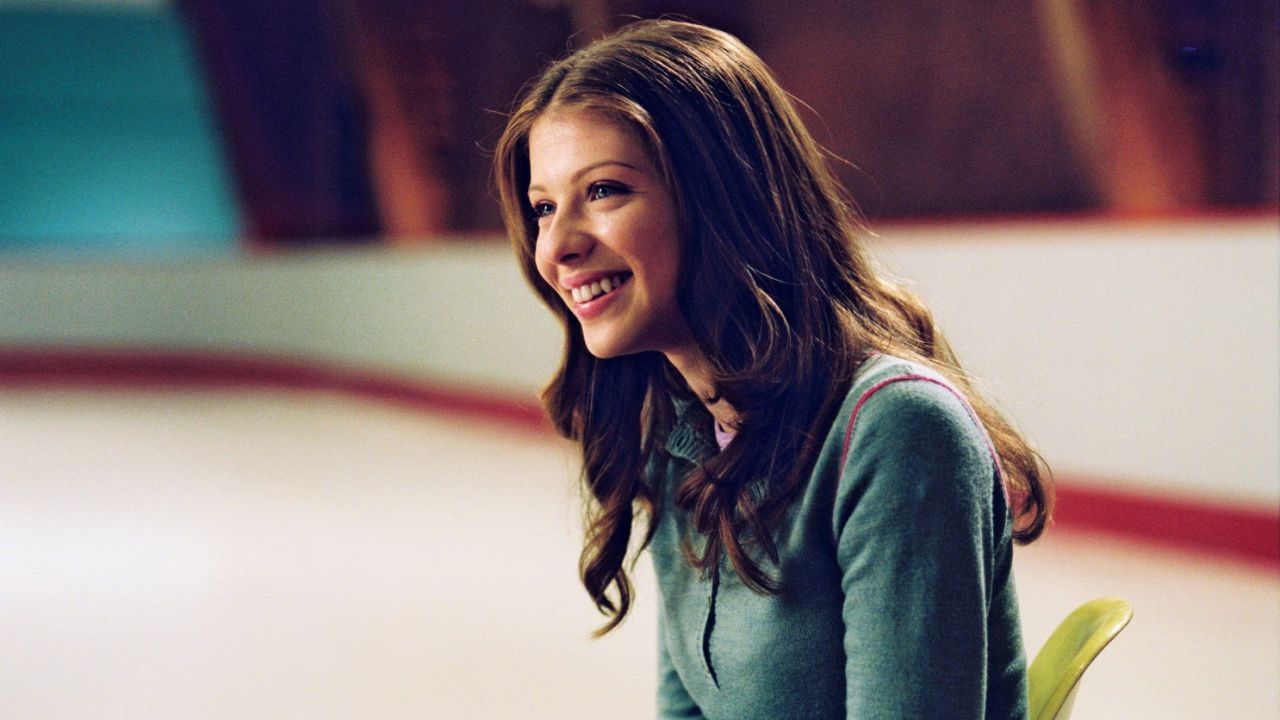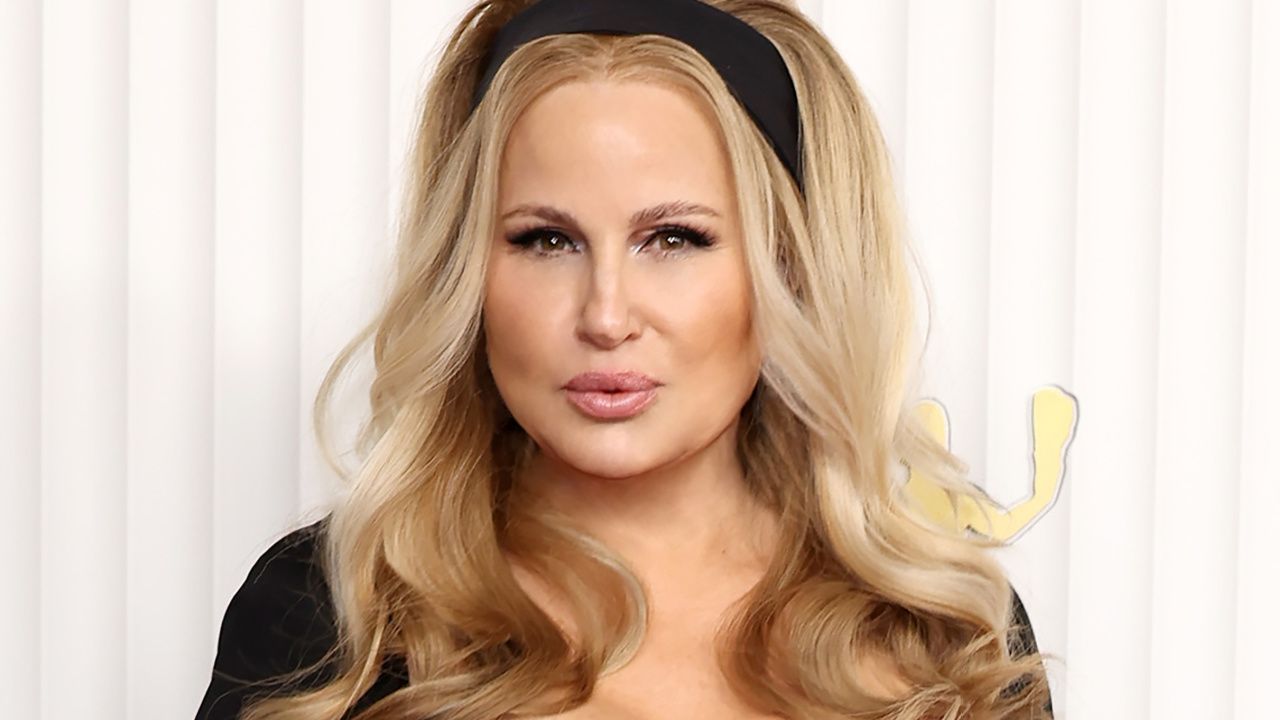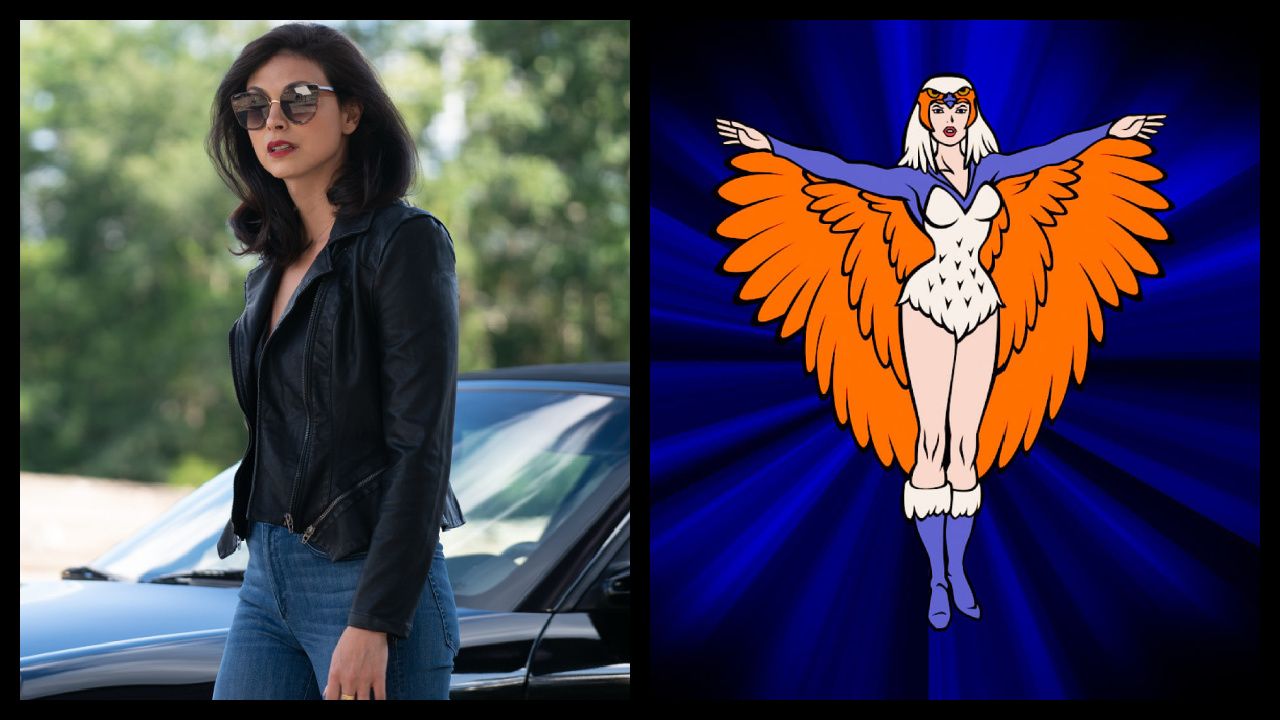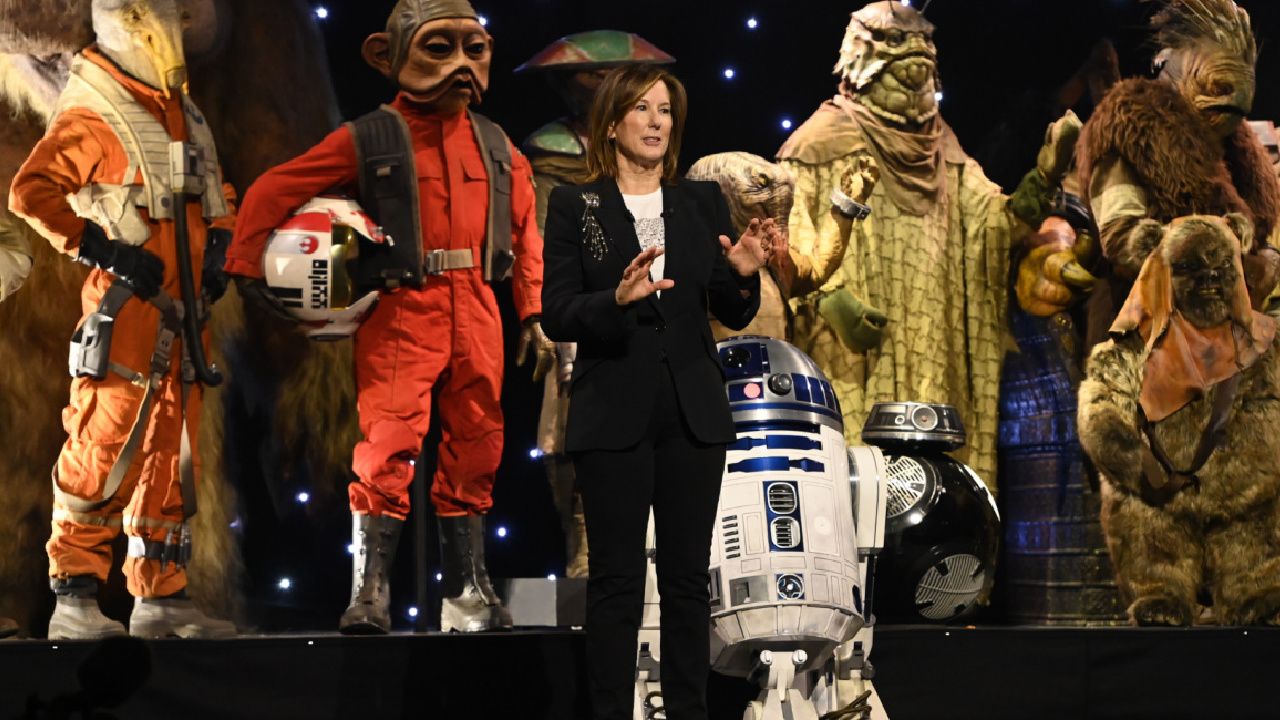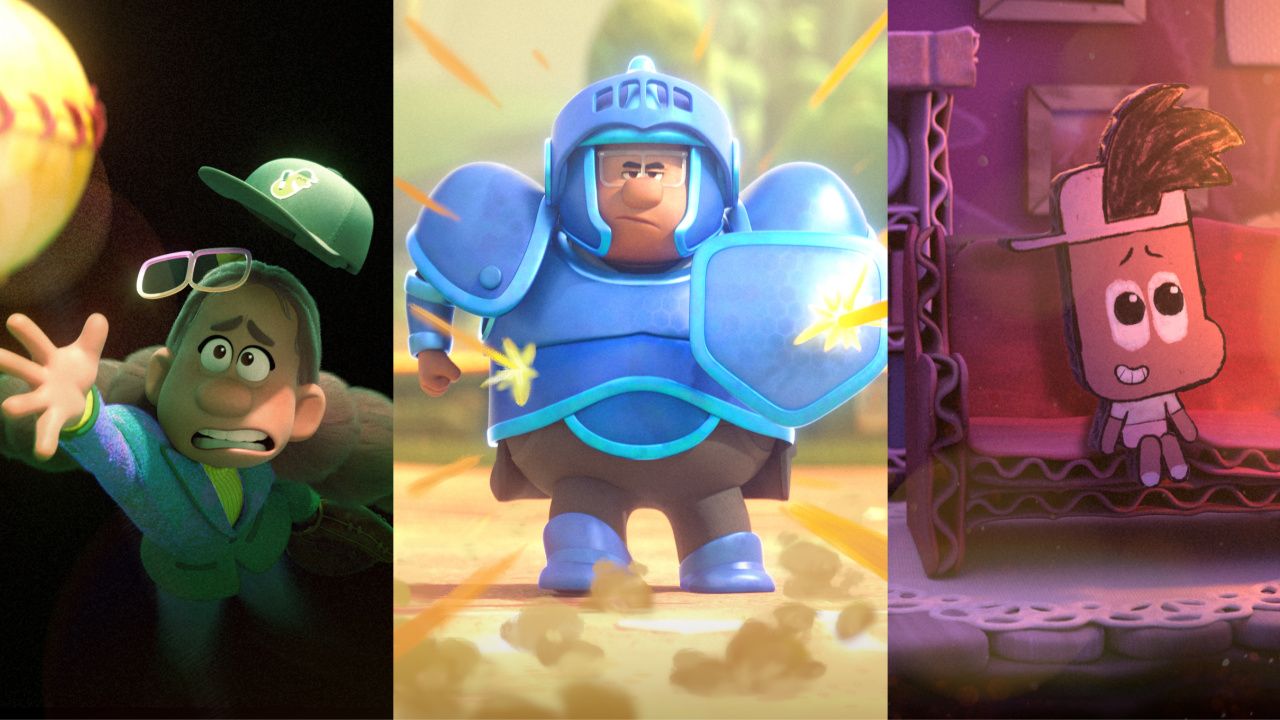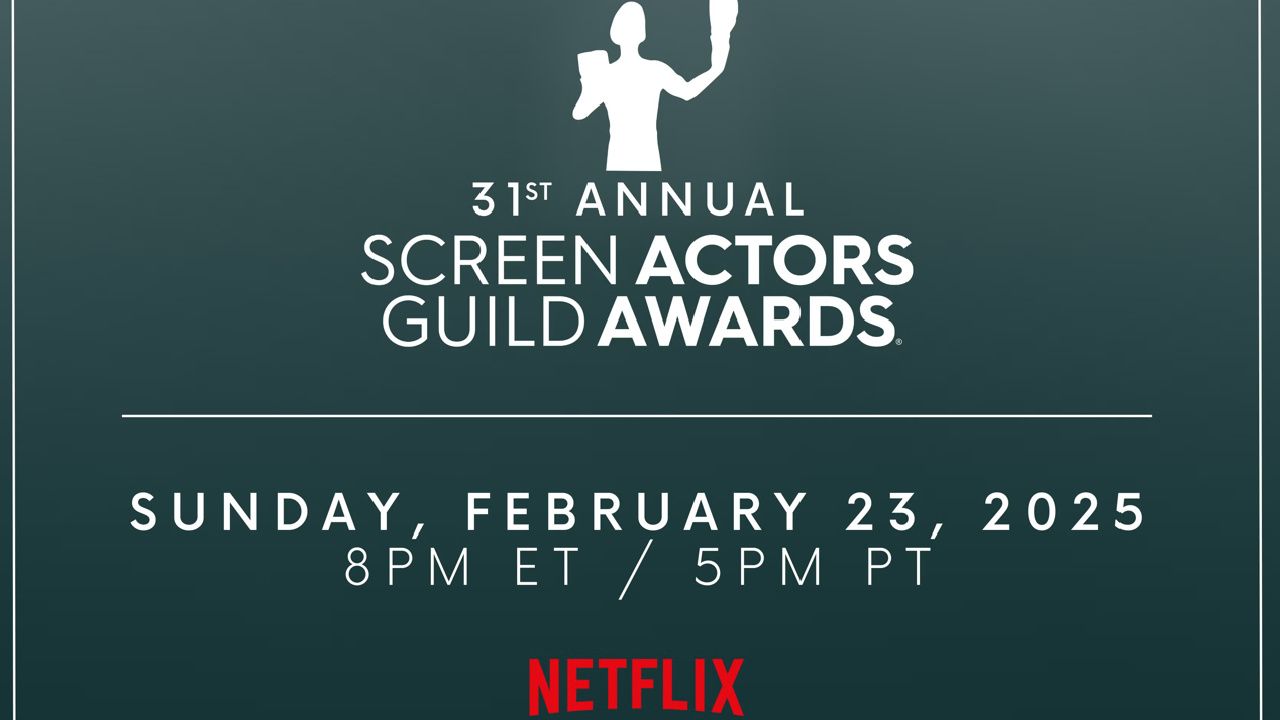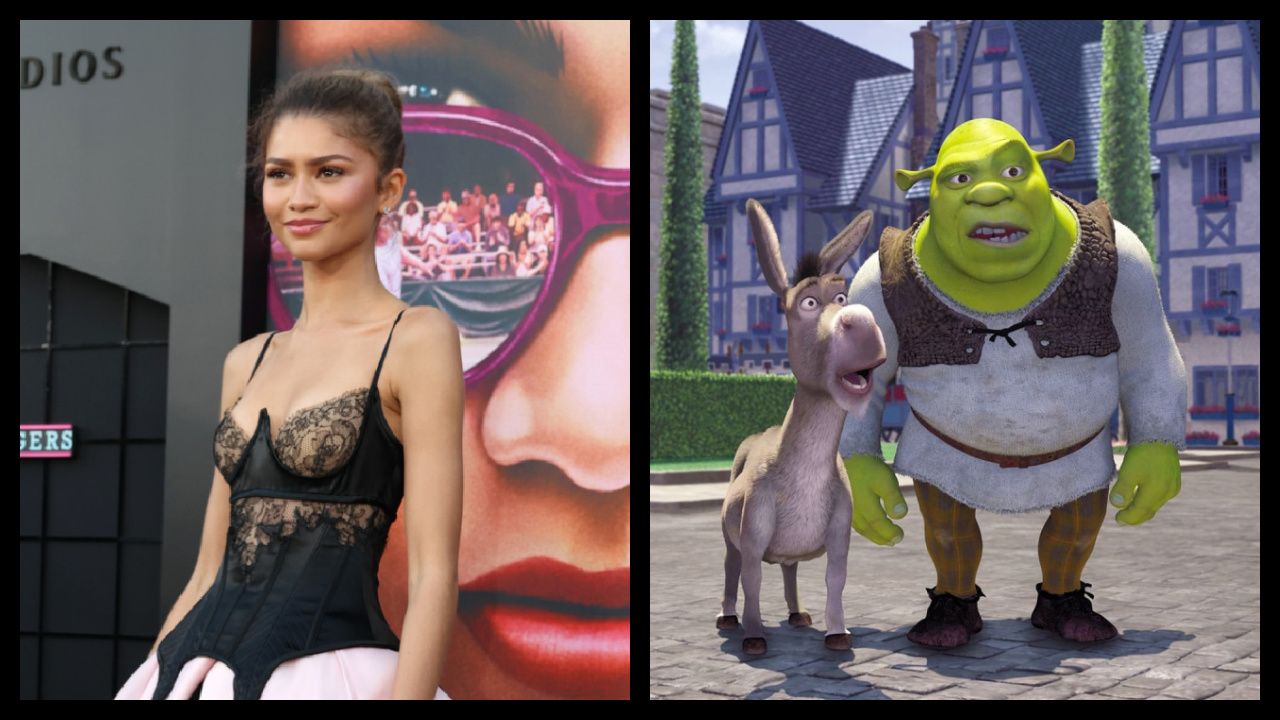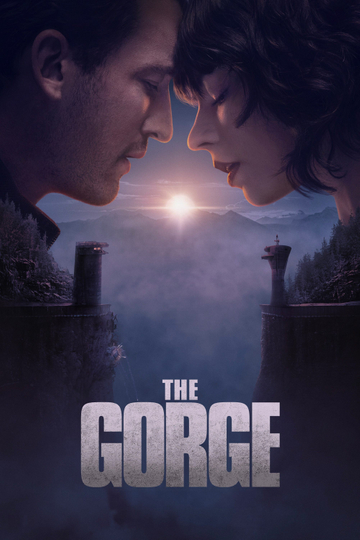How Johnny Carson Remains the King of Late Night 25 Years After He Retired
While The Tonight Show," he also remains the definitive master of the genre today, 25 years after he left his desk without looking back.
And for generations of fans who fondly remember Carson's reign as the King of Late Night, it's been easier than ever to indulge in nostalgia for the host who's still considered the gold standard by the many who've followed him. Along with regular airings of classic episodes on Antenna TV, Carson aficionados have reveled in the DVD sets currently being released by Time Life.
This month sees the release two hefty new collections: "Johnny & Friends: The Complete Collection," a 10-disc set collection featuring episodes (complete with original commercials) highlighted by many of Carson's favorite recurring guests, including Robin Williams, Steve Martin, Jerry Seinfeld, Eddie Murphy, Don Rickles, and Bob Newhart; "The Vault Series, Vol. 1-6" features six discs filled with complete episodes from 30 years of shows, including landmark anniversary specials and classic guests like Dean Martin, Orson Welles, Paul McCartney, Muhammad Ali and dozens more.
The collections highlight Carson's particular command of what have become late night staples: the topical monologues (which were even more hilarious when his jokes landed with a thud and Carson quickly spun his bombs into gold); the banter with his sidekicks (where announcer Ed McMahon and bandleader Doc Severinson frequently scored with their own one-liners;, the comedy sketches (the precursor to the viral skits of today's late night shows); and the effervescent back and forth with guests, celebrity or otherwise (along with film and TV starsCarson welcomed everyone from authors to zookeepers).
"My favorite thing was Johnny when he's talking to civilians – the old 'Potato Chip Lady' or whatever it might be," Carson's "Tonight Show" successor Jay Leno told Moviefone, referencing a memorable bit from 1987 featuring Myrtle Hunt, a woman who collected potato chips she thought resembled celebrities. When she was distracted Carson tricked her into thinking he'd taken a bite out of one of her prized chips, then charmed her after she'd realized she'd been pranked. "And that was always his great gift. He could connect with just about everybody."
"Johnny was the best because he connected with ordinary Americans better than anybody else," added Leno. "The best example I could give, I remember, I think it was Dean Martin was on with Johnny. Johnny looked at Dean Martin's shoes, I think they were Ferragamos -– this was the mid-60s -– and Johnny said, 'What did those shoes cost?' And Dean said, '300 bucks.'
"And Johnny, even with his own line of clothes, he comes from that Midwestern [perspective], so he was like, 'Whoo!'" Leno laughed. "In the 60s, that was a lot of money for a pair of shoes – it is now! And Johnny was stunned by that. That's what connects with regular folks, and I think that's what he did so well."
Carson's nephew Jeff Sotzing began working as a gopher on "The Tonight Show" in 1978 and eventually rising to the role of producer, remaining through his uncle's retirement in 1992, and currently serves as the head of Carson Productions. Sotzig is the official keeper of the flame, diligently releasing the carefully curated Carson collections and licensing historic clips to films and television series while being careful not to oversaturate the market. And as Sotzing reveals to Moviefone, the sustained interest in the late night king ensures that fans will be hearing "Here's Johnny" for a long while to come.
Moviefone: I am, as always, excited to see new Carson material on the home video market. Tell me what got you excited about releasing this current material to the audience that is still there for Johnny.
Jeff Sotzing: Yeah, it just is so hard to believe that, we've been off the air for 25 years and there's still tremendous demand. This material that Time Life has released has not been released before. It's all new, full shows. And these are kind of the go-to guys, Robin Williams, Steve Martin, Bob Hope, etc., and I just like the fact that it was able to capture the pace of that era, which is gone now, it's fun.
What's it been like to kind of see that interest sustained, and I'm sure in some cases spike up again over the 25 years since Johnny's "Tonight Show" tenure ended?
It's actually spiking up right now, which is so strange, because when we went off the air in 1992, Johnny and I both said, "Well, that's the end of that. That was a great run." And then we sold some VHS tapes a few years later. I said, "Wow, that's hard to believe." And then, we sold some DVDs.
Initially we said, "We've made enough DVD product or enough VHS product. We don't really need to do more. We don't want to overdo this." But the demand is there and the product continues to sell, and it just shows you that if you have a quality product, there's gonna be a market for a long time.
And as the years go by, the historic quality of the material starts to come in to sharper relief. Tell me about that aspect of what you do.
Well, I love the fact that the monologue is such a great combination of a humorous compilation of current events, so you want to find out about coffee prices or what's going on with politics, or anything, you just essentially go back and take a look.
There's a joke that Johnny did in like, 1972 about how he was in Beverly Hills and a bum stopped him and asked him for two dollars so he can get a cup of coffee –- and that's the joke, that a cup of coffee in Beverly Hills would actually cost two dollars. I think it's five dollars now. So it's funny to watch that stuff.
I'm sure that there were many secrets to Johnny's success, but what are some of the keys that you still see today – like, why it's so obvious to you that's why he's gold standard?
Well, because number one, he's really, really well-read, he's a great listener and he always felt that the most important thing was for the guest to be successful. So, if there was someone like Rodney Dangerfield or Robin Williams, who was just succeeding totally on their own, he just let them go. And if there was someone who was struggling, he would jump in and help out
He knew when to lay in and he knew when to lay out. He was, you know, the master of timing, for sure. And he's truly a funny guy.
As you spent time going through the archives, what are some of the discoveries or the revelations that, even though you were a part of the show, took on a new light?
The fact that it holds up so well. We have some full episodes running on Antenna TV and they span the whole era of the show between '72 and '92 and I was concerned that when we did that, people would say, "You know, I thought this show was really funny, and it's not that funny." But it is funny. It's really, really funny. It holds up. The timing is great, it's very simple, it's clean and it's relevant. It works today.
Do you think that Antenna TV deal has contributed to a resurgence in interest in Johnny right now?
Yeah, for sure, because my problem is I've been with this show for 40 years, 50 years. So in my mind everybody knows the show like I know the show, and they don't. But there's this incredible connection to the show.
I spoke with a gal who I met for the first time just a couple days ago. She's with a movie licensing and television firm and she said to me, "Oh, by the way, I have a Johnny Carson connection: My dad was the navigator at Air Force One in the 80s and he flew Ronald Reagan out here to his ranch and for some reason they were able to get them seats for the 'Tonight Show' and they were in the studio audience and Johnny acknowledged that they were in the studio audience and had them stand up on camera."
And I said, "Well, you know, if you search our archives, you can probably find that." Sure enough, she called me back 10 minutes later. They found the show, she played it for her mom and her sisters –- her dad has been gone for a while now, so it's just amazing. The connection –- I can't get away from it. It blows me away.
Is that also a big part of your business now? The different kind of docu-series getting in touch with you to license those kind of clips?
Yep. I mean, we're providing clips for the "The Deuce" on HBO, we're providing clips for a documentary on Gore Vidal...I get requests for footage, I don't want to say every day, but it probably averages out to one a day. I mean, sometimes it's like, four or five a day. Sometimes more -– it's just incredible and for the strangest things.
You've been very judicious about what you do with Johnny's image as far as licensing and merchandising. Tell me what the philosophy is now. Has there been an evolution, or do you still stick to a certain set of guiding principles, in as far as how you want to keep exposing Johnny and "The Tonight Show" in the future?
Well, I want to make sure that the quality and the brand is protected. So we only release material that we feel has strength and is entertaining, and we don't want to overdo it. I know that he would be very reluctant about releasing very much at all.
You know, he had a clothing and he a cologne line and restaurants, and by the time he was finished with doing 'The Tonight Show," he was done with that. So I was never involved with any merchandising of his name and likeness, and I think it's probably a good thing. It protects the brand and makes it strong, and people feel that when they buy this product that they're going to get quality stuff –- and they do.
And you've got a streaming series related to Johnny's experience coming up.
We're actually working with Paul Reiser on this show, "There's Johnny" –- and I'm an executive producer on that show, so I should tell you that up front! But it is a show that takes place in 1972 backstage at 'The Tonight Show," and it's not necessarily about "The Tonight Show," it's about a fictitious group of people working on 'The Tonight Show." So, that's gonna be available on Hulu soon and that's exciting.
What was fun about kind of doing that unseen side of a life that you lived yourself?
Well, I gotta tell you: the funny thing about it, Scott, was they recreated the entire set with all the cameras, all the backdrops, and we had body doubles who would stand in and then they'd do the scenes so we could actually put these body doubles in. We replaced Johnny and Doc, and we shot this scene where it was just kind of wide, generic shots.
I was talking to a boom operator about what he did and where he worked and I realized, he's not the boom operator. He is an actor playing a boom operator. There is no boom. It's all wireless and the camera's not here, it's back there. So I felt like I was right back in the studio again. It was very strange.
Why was Paul the right guy? I know he was a pretty regular guest of Johnny's in his standup days.
Paul Reiser came to me with this idea 10 years ago and I said, "I don't think so." Johnny had just passed away, and I had to see what it looked like. You know, I just was not comfortable again, merchandising or overexploiting him and the brand.
And Paul actually continued and convinced me that he would write a script and he did it with David Simon and it was just sensational. And at that point, I said, "Okay, let's see if we can sell this," and they did. So I'm very excited about that. They've done a great job.
Tell me your favorite memories of working on the show. What are the things when you think back to your time on "The Tonight Show" that always leap immediately to mind?
I started attending "Tonight Show" tapings in New York in the 60s when my uncle Dick was the director of the show. I lived in Philadelphia, and I would take a train, go to New York, watch Marvin Gaye and Aretha Franklin – I loved all these Motown stars – then sit in a booth because I was too young to sit in the audience.
Fast forward to 1978, I get a job as an intern on "The Tonight Show." Basically, I go for a receptionist and I end up as a producer. I turned that into a producing job and put together the final show, and was there with Bette Midler and Robin Williams.
And to go from that arc, to see that happen was just had to believe. To see the beginning of the show and then the very end of the show, the incredible effect that had on people was a surreal moment, for sure.
What did you love about watching Johnny in the moment, doing his job when the cameras weren't rolling -– and when they were rolling?
Just because he has such great timing and so incredibly fast and able to pick up on things that are going well. Rodney Dangerfield tells a story about sitting on the panel after doing a great standup and then doing his little bit at the panel and he said to Johnny, "You know Johnny, you and Ed, you guys have been working together, what? 25 years? No kids?"
And he got this huge, huge laugh and Johnny sat there and waited and waited and he looked at Rodney and said, "Well, it's not like we haven't tried." It's hysterically filthy, but it's still funny and Dangerfield said, "That's unscripted. That just came off the top of his head, and how do you top that?"
I mean, he's just amazing. I was so fortunate to be able to work with such an incredible talent for so long. And he became my friend, which is even more strange. But yeah, a terrific man.
And it's amazing that his personal politics were so hard to identify. In his monologues he managed to be so funny critiquing everybody on all sides of the aisle.
He would say, "Why alienate half the audience? Let's keep it straight down the middle."
He was terrific because if you go back and look at some of the material, it's pretty clever the stuff that he comes up with.
A show just licensed some Gary Hart material from us from the monologue and you know, just Johnny talking about, "Hey, if you're going to go on vacation and you're running for president, do you really think it's a good idea to get on boat named Monkey Business? Is that really a good idea?" I mean, it's just funny. It's great.
What was interesting about watching Johnny after the show was over and he clearly chose to lead a pretty private life after being in everybody's bedrooms for all those years? What was interesting about seeing him in retirement?
The fact that he could be much more relaxed –- that show just eats you alive. You spend every minute of the day thinking about how that show is going to be put together and what you're going to do, what you're going to ask and then when it's done, you think about what you're going to do tomorrow. The fact that he didn't have to do that, I think, was a great relief.
He also made a conscious decision to not go back. He was pitched, and we were pitched together, lots and lots and lots of ideas for television shows from various producers and individuals, and he would basically say at the end of these meetings to me, "I don't think we can do much better than we did on 'The Tonight Show' for 30 years, so I don't see any reason to go back and screw that up."
Because he let go, he was loose and he would invite staff members over for lunch, which never happened before. They'd come and hang out, and then he traveled and he had a beautiful yacht and he was very much more relaxed – but still funny as hell!
And every once in a while he couldn't resist slipping a joke to David Letterman.
Well, that was the great thing. He would just do like one or two a week, and then Letterman would send him an envelope of checks for $39 each. "Independent, freelance joke writer – 39 bucks." It's hysterical.
And I bet Johnny cashed them.
I don't know! They had a funny relationship together. I remember once I came into the office and it was June, I think, in California and there was a set of snow tires in the lobby. "What the--? Why is there a set of snow tires in here?" Johnny said, "I don't know. It's a Christmas gift from David Letterman."
Johnny didn't invent the late night talk show, but he certainly perfected it. He owned that corner of TV at the time, and we now see everybody trying to get into the act 25 years after he left. What does it mean to you to see that his legacy not only exists in the shows that he taped, but in the fact that everybody's still trying to capture some of that magic that Johnny created every night?
You see Jimmy Fallon the other night with Jennifer Hudson, I think it was, having a Tomahawk toss using a cutout similar to Johnny's Ed Ames bit in 1964. It's just crazy that they would do that. But the technology has changed now too, so there's much more that you can do with video and inserts, and you couldn't do that because we did the show basically live. We start at 5:30 and we're over at 7 and only went for an hour, 5:30 to 6:30 and you couldn't stop tape at all.
So, things were much more simple, and because of that, they had to be strong. So the fact that simple technology and a casual conversation holds up after all these years is a true testament to how good he was.
I've never seen a show where Johnny didn't look like he was having fun. Do you have a sense of why he loved what he did?
Well, he'd tell you that because when you're in front of the camera that you're in control. He liked being in control and he liked getting laughs.
I think the one thing he missed the most when he went off the air was not to be able to do the monologue. When you stand on that star and 500 people are screaming out your name and laughing at your jokes, that's pretty strong stuff.
That's pretty heavy stuff, and I know that he liked that. But he had his own small audience of people who would come to visit him and he entertained for them and made them laugh. It was terrific, just wonderful.

